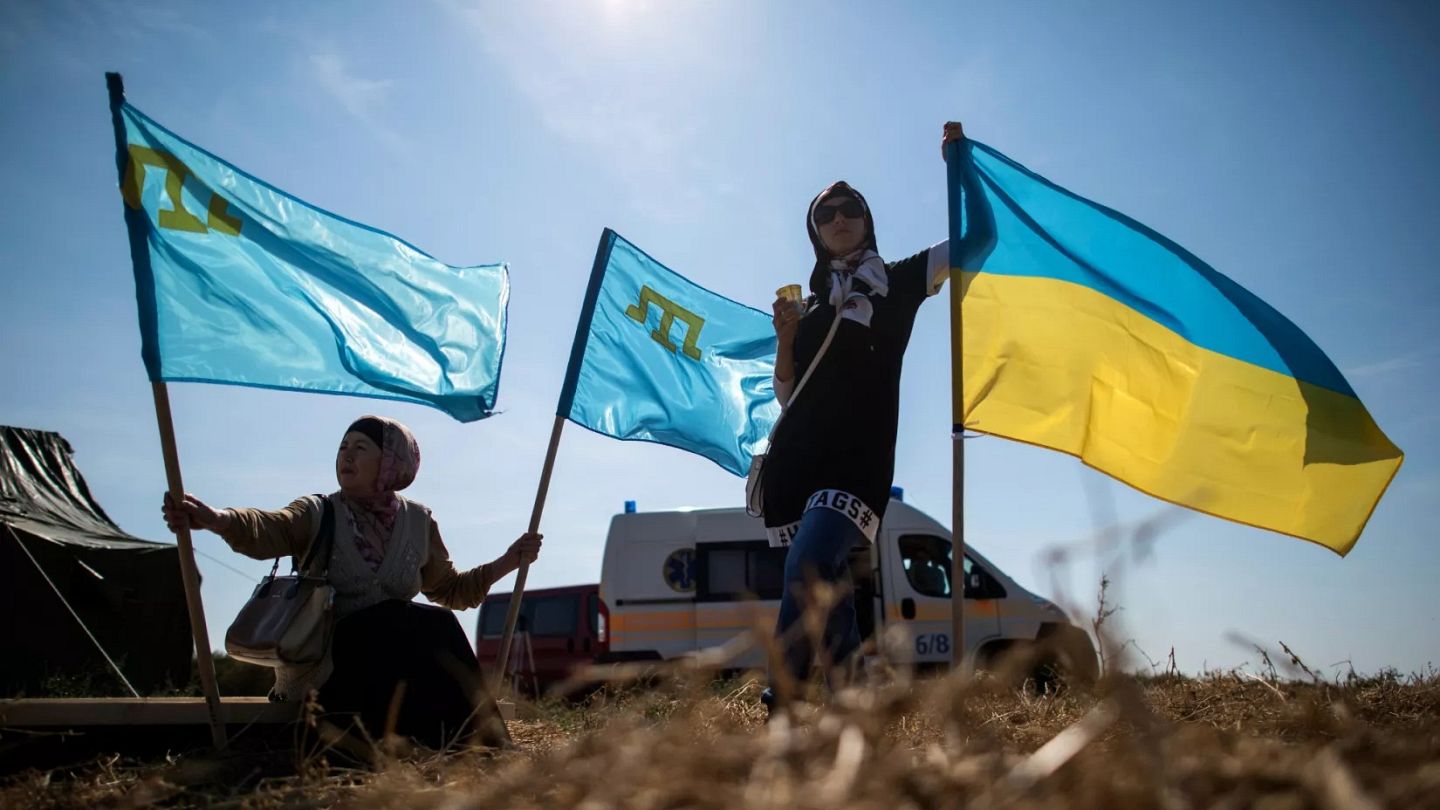Allies asked Kyiv ‘not to provoke Russia’ during Crimea annexation, Mejlis leader tells Euronews
Donald Trump’s claim that Ukraine didn't fight for Crimea 11 years ago "when it was handed over to Russia without a shot being fired" is both disrespectful and false, Chairman of the Crimean Tatar Mejlis told Euronews.
When Russia first invaded Ukraine and Moscow soldiers entered Crimea in 2014, Ukraine’s foreign partners were asking Crimean authorities not to "provoke Russia," Chairman of the Crimean Tatar Mejlis told Euronews, rejecting Donald Trump’s claims that Ukraine didn't fight for it and "handed over to Russia without a shot being fired" instead.“All of our partners and allies at the time said that we should not provoke Russia, that they, together with the Ukrainian state, would definitely find forms and ways to resolve this crisis. I am quoting what they told me when I was in the occupied Crimea,” Refat Chubarov said.Chubarov recalled he spoke to the ambassadors of different countries almost every day and nearly all of them told him that they "hoped that the Crimean Tatars would not provoke the Russian military". "Because then there would be pogroms, would be very tragic events, and they would not be able to help civilians," he remembers being told.After the annexation of Crimea in March 2014, Moscow declared the Mejlis — the only authorised representative and executive body of the Crimean Tatar people — an extremist organisation and banned its activities in Russia and Russian-occupied Crimea. Chubarov was forced to leave the Black Sea peninsula shortly afterwards. In 2021, a Moscow-imposed court sentenced him to six years in prison on fabricated accusations of organising mass riots in 2014 and of issuing calls to "violate Russia’s integrity" — the wording used by the Kremlin to describe Crimean Tatars fiercely opposing the annexation. “Those who reproach us for not resisting should recall the cowardly position of their own states, which acted as guarantors of the security of the Ukrainian state under the Budapest Memorandum”, he told Euronews, referring to the US as one of the signatories of the memorandum.By signing the Budapest Memorandum, Ukraine gave up its nuclear weapons, hoping that other signatories would protect the country.“But they were afraid, and now they reproach us for not being able to stand up to a nuclear power, a permanent member of the UN Security Council. They reproach us for failing," he explained. "At that time, it was not only and not so much the Ukrainian state failed, but the world failed to stop the aggression of a nuclear state, which is a permanent member of the UN Security Council.”'Great disrespect' for those killedAnother claim by the US president, which angered and shocked Ukrainians and Crimean Tatars, is that the peninsula was "handed over to Russia without a shot being fired".Chubarov calls it "a great disrespect for the Ukrainian military, who were killed in the first days of the occupation."“In the months following the occupation, in May and June, our young people were forcibly abducted. We later found some of them killed, some of them to this day we cannot find, we do not know where they are," he said."To say that Crimea was taken without a single shot being fired or without a single casualty is simply to disrespect the people who were in that situation and to admit to their ignorance of those events”.Meanwhile, Russia has not changed its plans to occupy all of Ukraine, according to Chubarov. However, given that Moscow couldn’t achieve it in more than three years since the full scale invasion, "Russia will hold on to Crimea until the very end because Putin needs Crimea as a reassurance to the Russian society to calm down the people, given that Russia couldn’t achieve anything else in over three years."“If the president of the United States somehow officially calls Crimea Russian territory, it would be a great excuse for Putin to get out of the mess he's in, and he would personally present it to Russian society as a huge victory,” he added.This would only strengthen the regime in Moscow, and it would not lead to peace, Chubarov concluded.


